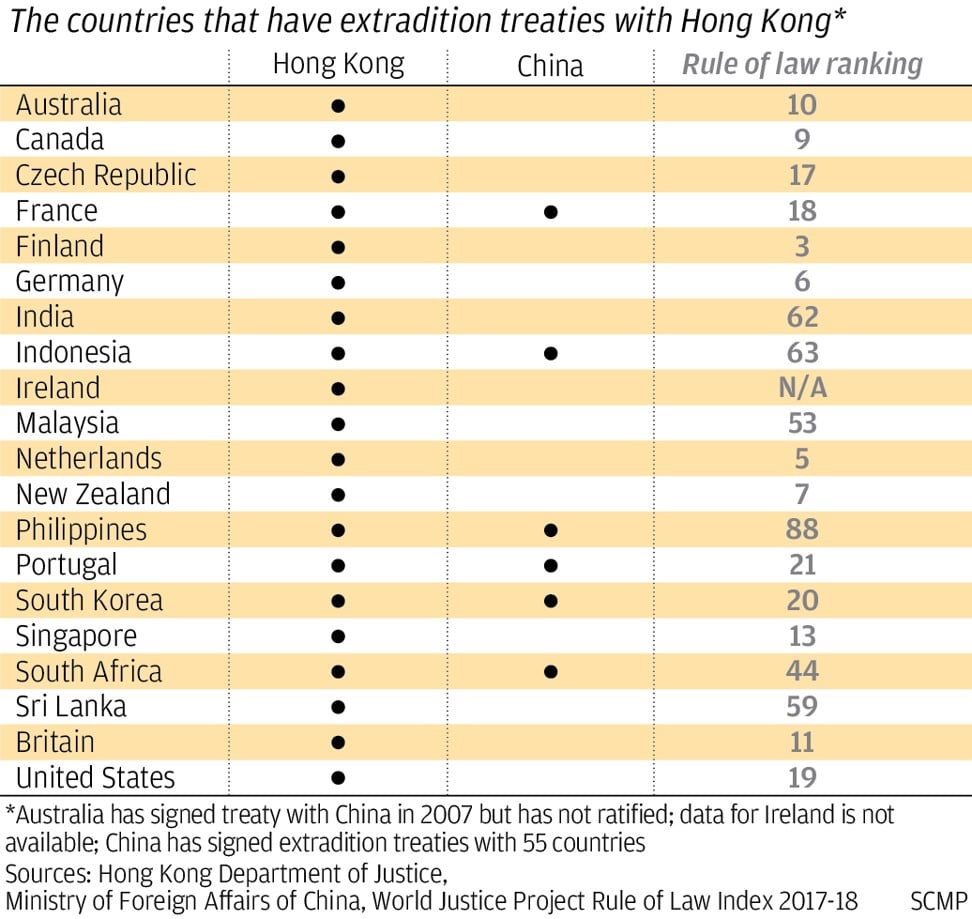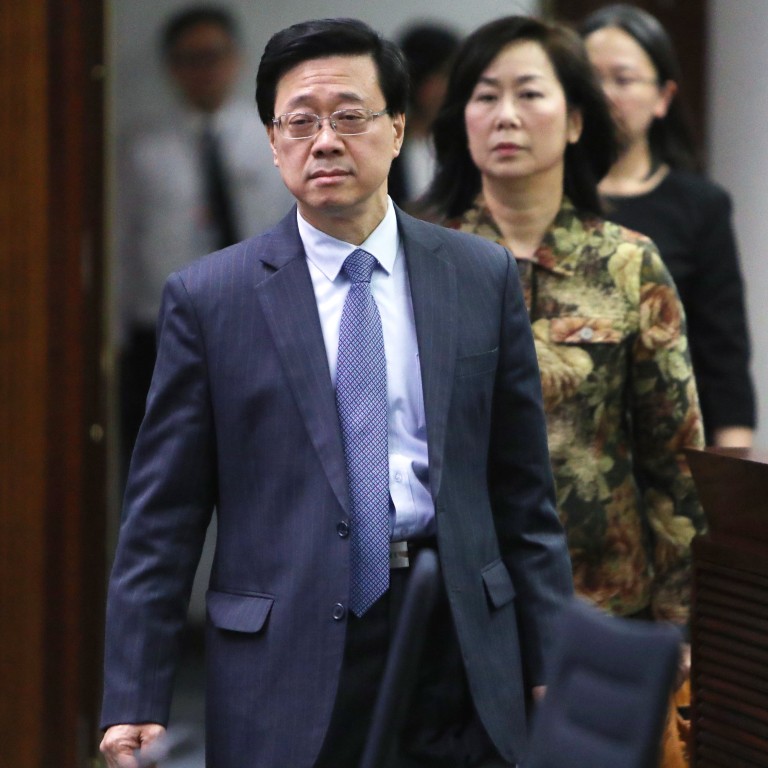
Hong Kong plan to send fugitives to mainland China not cause for human rights concerns, security minister says, as 55 countries already have extradition deals with Beijing
- Secretary for Security John Lee tells lawmakers to look at proposal objectively
Hong Kong’s security minister on Friday told local lawmakers not to judge through “coloured lenses” a plan to hand over fugitives to mainland China, because 55 countries already trusted Beijing enough to have signed extradition treaties.
Secretary for Security John Lee Ka-chiu defended the government’s proposal to transfer suspects on a case-by-case basis to and from Taiwan, Macau, mainland China and any other jurisdiction where a formal agreement with the city was absent.
Pro-democracy lawmakers have repeatedly voiced strong opposition to the plan in light of the mainland’s human rights record, but Lee said the proposal was about securing justice.
The issue received attention in February when a young Hong Kong woman named Poon Hiu-wing disappeared in Taiwan with her boyfriend Chan Tong-kai. Taiwanese authorities suspected Chan may have killed her but were unable to prosecute Chan, who remains in Hong Kong.
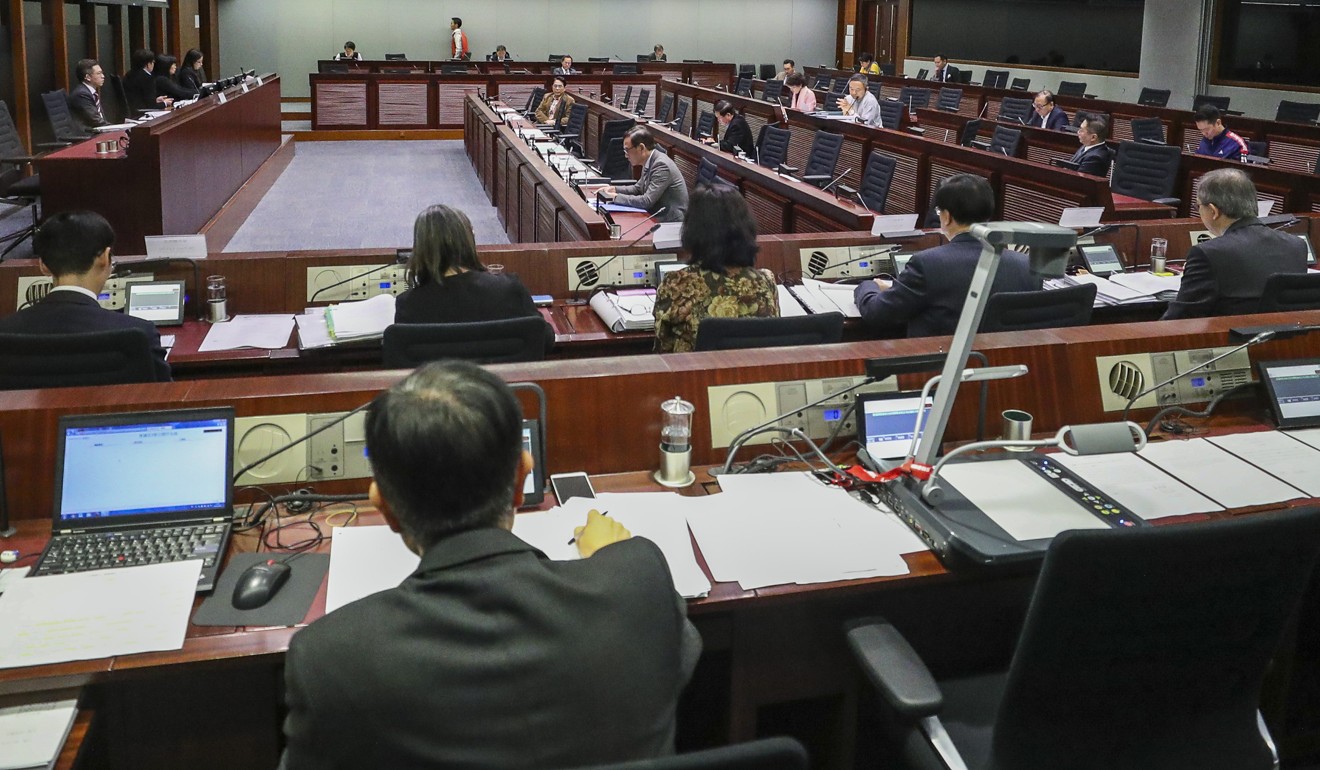
Lee said Taiwan had filed an extradition request but Hong Kong was unable to oblige for now because the necessary legislation was not in place.
“I could have turned a blind eye to this on the Taiwan case – that would have made my life easier,” Lee said. “But we knew our consciences would not allow us to do that.”
The suspect was now free in Hong Kong, he added, and would continue to be if the legislature voted down the proposal.
“His case will end just like that,” Lee said. “Suspects of this kind will be living in Hong Kong with us every day.”
Pan-democrat call for extradition deal solely with Taiwan dismissed
He cited three cases in which suspects accused of killing Hongkongers in the city were still at large on the mainland. Another murder suspect in a separate case was reported to be in Thailand, he said.
But the pro-democracy camp remained unconvinced by Lee’s arguments on Friday.
Democratic Party lawmaker James To Kun-sun said Hong Kong courts could provide legal safeguards before transferring fugitives, but the judges could do nothing to ensure a fair trial or representation after a suspect was sent to mainland China.
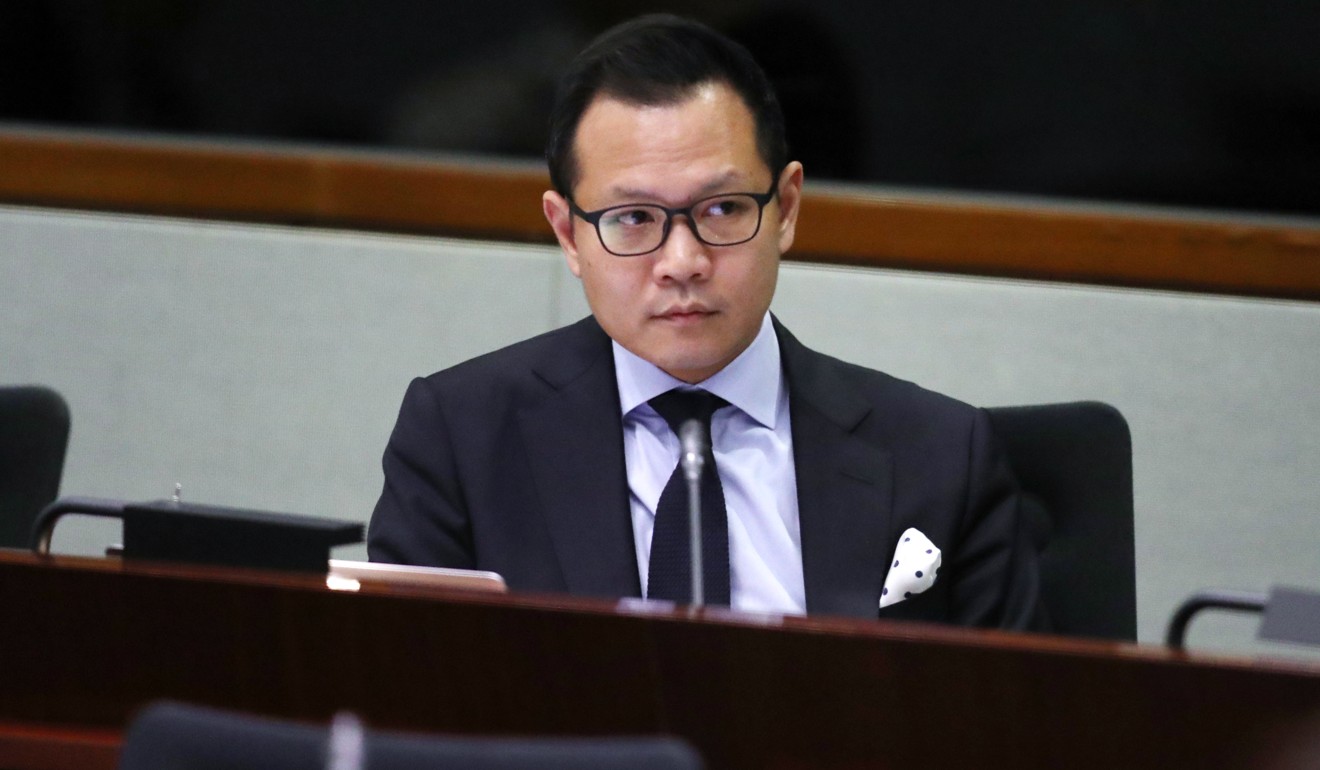
Civic Party lawmaker Dennis Kwok said the mainland ranked 108th for respect of fundamental rights in a 2017-2018 report by the World Justice Project, behind Zimbabwe, Ethiopia and Iran. In terms of justice overall, China placed 75 out of 113 countries. Hong Kong was 16th.
“Are we really confident handing over an accused person to be tried on the mainland?” Kwok said. “The law there stipulates that cases have to be heard within six months, but many defendants have been held incommunicado for three, five or even seven years.”
Will justice be served by proposed changes to fugitive laws?
Lee responded by saying he respected the views of lawmakers but would not enter into a debate about the mainland’s legal system.
“Other countries, some with the common law system, also have this mechanism in place,” he said. “And with so many countries having signed extradition treaties with the People’s Republic of China, it may not be fair to view this proposed arrangement through such coloured lenses.”
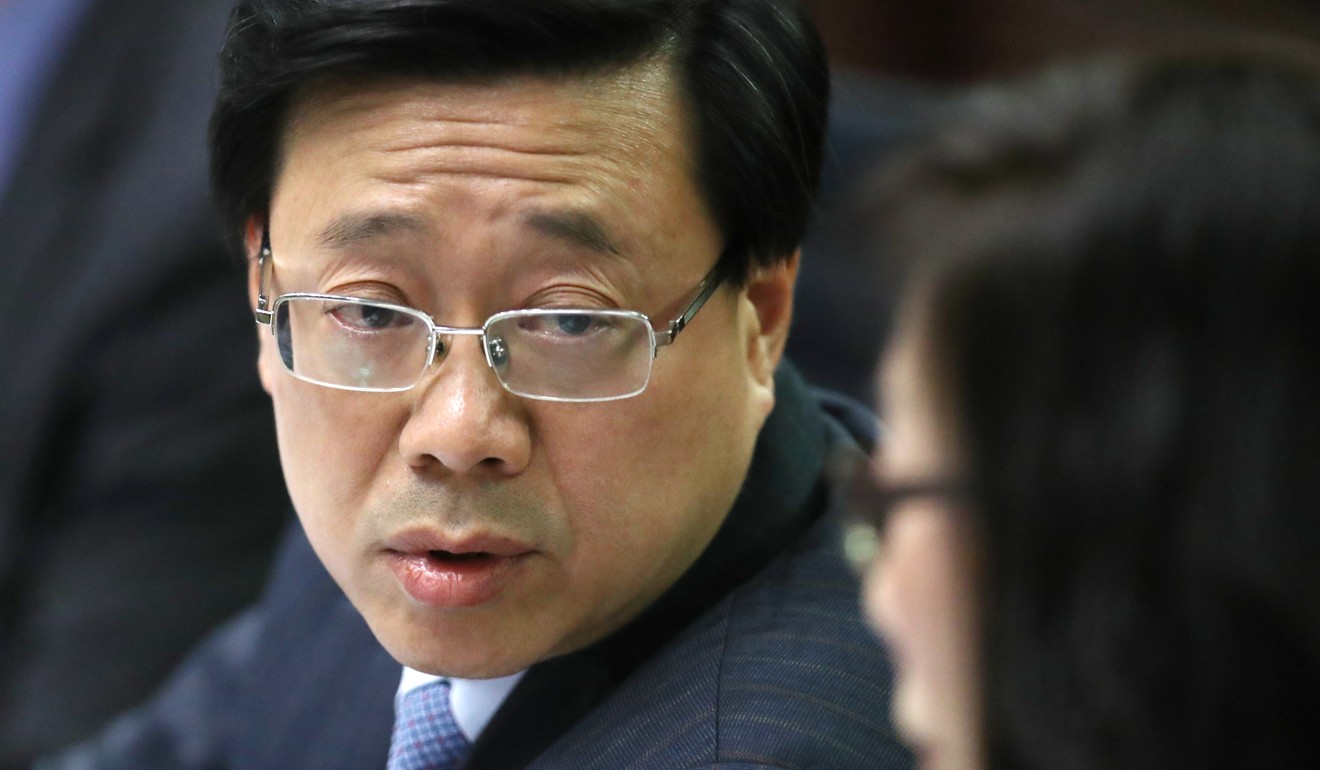
Hong Kong currently has reciprocal extradition agreements with 20 countries including the United States, Britain, Australia and New Zealand. Mainland China has signed deals with 55 but only 39 have been ratified and brought into effect, according to the Ministry of Foreign Affairs.
Australia has not yet formally ratified its agreement with Beijing after lawmakers there also expressed concerns about human rights.
Only six countries have extradition deals with both Hong Kong and mainland China – France, Indonesia, the Philippines, Portugal, South Korea and South Africa.
Legal experts previously cautioned that the proposal could place in jeopardy Hong Kong’s existing treaties because the deals were based on trust in the city’s legal system. But Lee said these agreements would be unaffected as suspects could not be re-extradited to a third country.
If the Hong Kong government’s proposal is endorsed by the Legislative Council, it will apply to 46 types of crimes, including murder, assault, sex offences, tax evasion and economic crimes.
Pro-democracy lawmakers questioned whether some of the charges would be used to silence dissidents.
Time running out for fugitives under proposed law amendments
“The Chinese authorities charged famous artist Ai Weiwei with tax evasion,” Labour Party legislator Fernando Cheung Chiu-hung pointed out.
Ai is known for his open criticism of the mainland’s human rights record.
However, pro-Beijing lawmakers said politics should have no place in the decision because the proposal was purely a crime-fighting measure.
“If you’re talking about human rights conditions, the Philippines is even worse, but Hong Kong still has a permanent treaty with it,” Paul Tse Wai-chun said. “What’s good for the Philippines is what’s good for the People’s Republic of China.”
Former Legco president Jasper Tsang Yok-sing said maintaining the status quo with the mainland was not ideal.
“Cross-border crimes are expected to increase as integration between Hong Kong and the mainland deepens,” Tsang said. “The issue is worth discussing. The government can handle Taiwan first, but it must go on to tackle mainland China as well.”
Additional reporting by Su Xinqi


